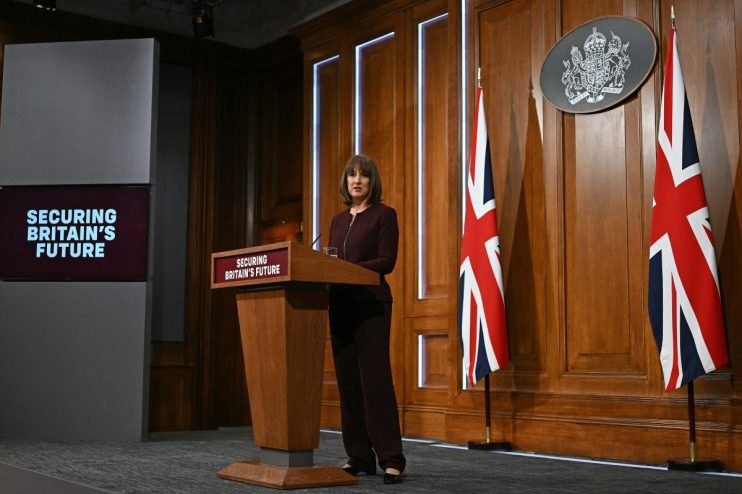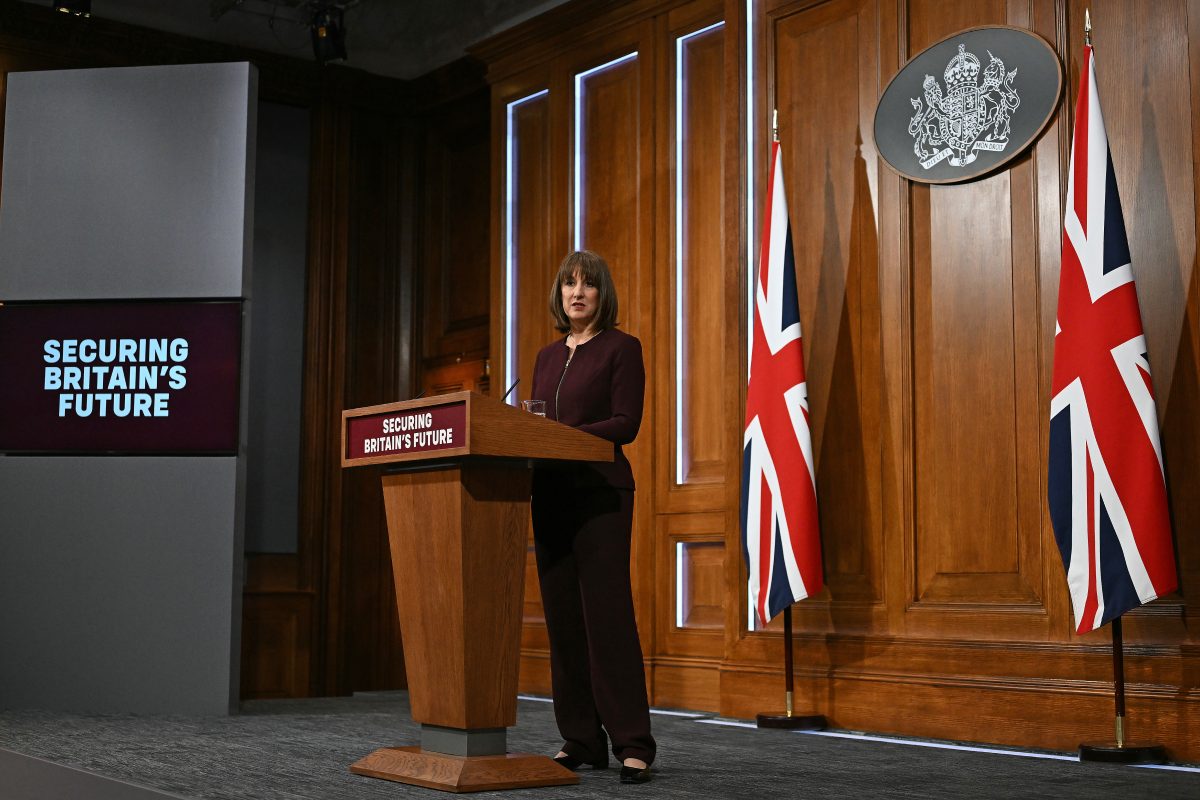Monday 18 August 2025 9:51 am
Share
Facebook Share on Facebook
X Share on Twitter
LinkedIn Share on LinkedIn
WhatsApp Share on WhatsApp
Email Share on Email
 Rachel Reeves faces a battle against higher government borrowing costs.
Rachel Reeves faces a battle against higher government borrowing costs.
Government borrowing costs have jumped over the past two weeks, flashing warning signs for Chancellor Rachel Reeves.
The 30-year gilt yield hit 5.57 per cent on Friday before falling back to stick around 5.54 per cent when trading began on Monday.
Gilt yields are higher than levels seen in April after President Trump announced sweeping tariffs on ‘Liberation Day’ when they hit 27-year highs.
Ten-year gilt yields have also jumped from around 4.51 per cent at the beginning of the month to as much as 4.7 per cent, although the gilt yields are lower than they were in April and June.
Tensions around borrowing costs are reflective of a lack of trust in major economies’ ability to pay off debt. The UK, in particular, is in a difficult position.
Traders are pricing in fears of high inflation, which could keep interest rates at higher levels than expected for longer. Spending choices made by the Chancellor are also reflected in bond yields.
Higher yields have prompted Bank of England policymakers to consider slowing the pace of quantitative tightening (QT) process.
Reeves battles high government borrowing costs
Analysts believe gilt yields remain high due to the Bank of England’s hawkish view on the UK economy, with inflation set to hit four per cent in September and further cuts to Bank Rate becoming more “uncertain” after a three-way split on the Monetary Policy Committee.
Read more
Standard Chartered shares struggle to rebound after US lawmaker triggered $3bn sell-off
“The spike in European bond yields coincided with the release of the UK labour market data, which showed stubbornly high wage data and a slowdown in job losses in recent weeks and months,” said Kathleen Brooks, research director at trading platform XTB.
“Interest rate cut expectations for the UK are being scaled back, there is now less than one rate cut getting priced in by the end of the year, and only a 40 per cent chance of a cut priced in for November.”
“For now, UK bonds are taking the brunt of the selling, and Gilt yields are rising faster than yields in Europe and the US. Due to the UK’s weak fiscal position, this is to be expected.”
Rachel Reeves is under pressure from her backbenchers to avoid drastic cuts to government spending.
Her fiscal rules and Labour’s manifesto commitments mean she has limited options when it comes to tax hikes, with income tax, national insurance, VAT and corporation tax making up around three-quarters of total revenue.
Speculation around the Autumn Budget is heating up, with economists claiming higher borrowing costs will destroy her small £9.9bn headroom.
Reeves has said her fiscal rules are “non-negotiable” and claimed abiding by them was essential to keeping the UK economy afloat.
“One in £10 of government spending is spent servicing our debt. I am a Labour politician. I don’t think there’s anything progressive about spending £100bn a year, often to US hedge funds when I would rather spend that money on our health service or on defence,” she said at a Treasury Committee hearing last month.
Read more
The Grand Whisk(e)y Tour: An ultra-exclusive whisky experience
Similarly tagged content:
Sections
Categories
People & Organisations

